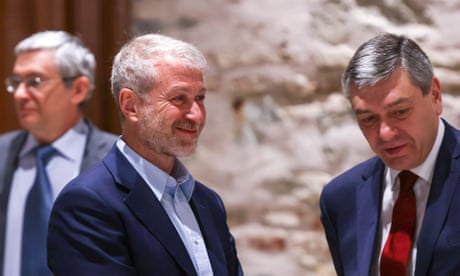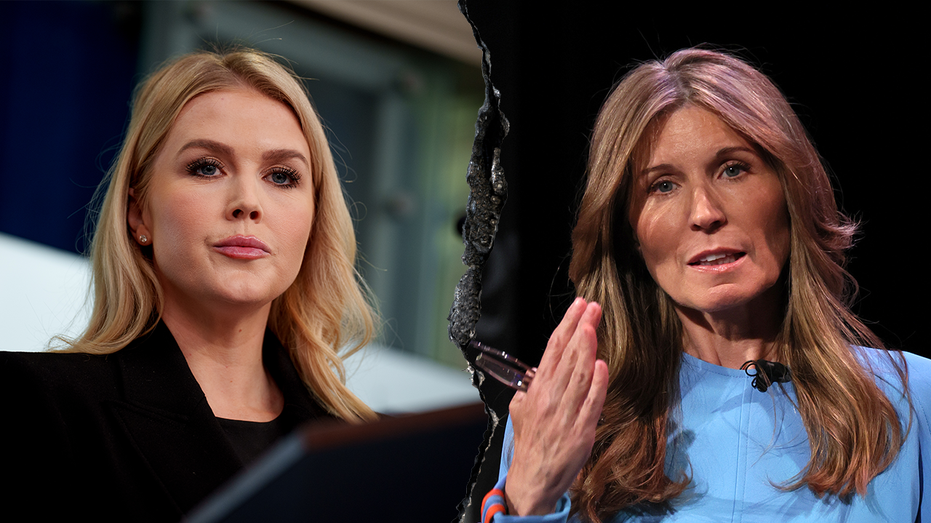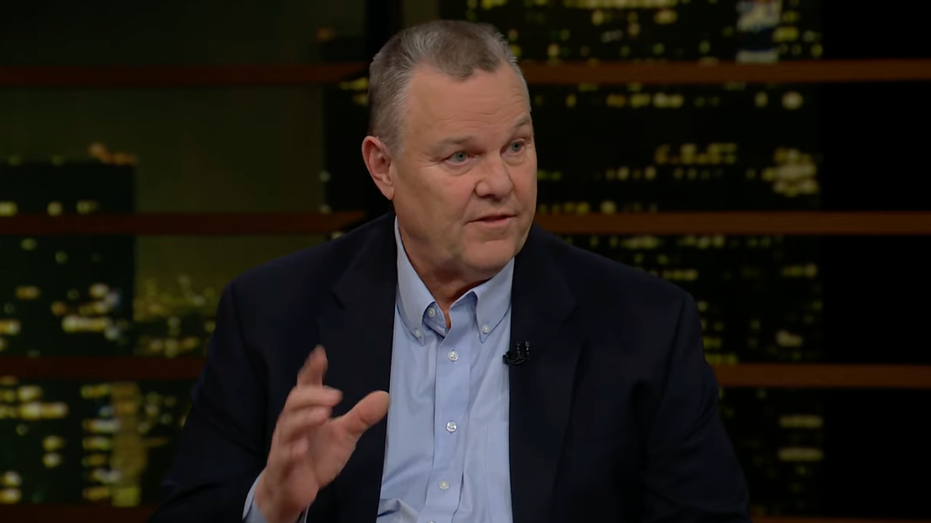- by foxnews
- 09 Mar 2025
Russia vows to ‘radically reduce’ military activity in northern Ukraine
Russia vows to ‘radically reduce’ military activity in northern Ukraine
- by theguardian
- 30 Mar 2022
- in news

Russia has pledged to drastically cut back its military activity in northern Ukraine to help advance peace talks, but experts and western diplomats expressed doubts that the move was more than a ploy to dress up setbacks on the ground.
Russia's deputy defence minister, Alexander Fomin, said after talks in Istanbul on Tuesday that Moscow wanted to "increase mutual trust, create the right conditions for future negotiations and reach the final aim of signing a peace deal with Ukraine", and that the Kremlin would "radically reduce military activity in the direction of Kyiv and Chernihiv".
However, while Moscow presented the move as a goodwill gesture, it came as Russia's advance appeared to have stalled on several fronts, with the Kremlin's forces thwarted by stiff Ukrainian resistance, heavy losses and logistical and tactical failings.
Having failed to seize the Ukrainian capital and force an early capitulation, Moscow said last week it was shifting its focus to expanding the territory held by pro-Russia separatists in the eastern Donbas region. The defence minister, Sergei Shoigu, said hours before the talks the "main goal" was now the "liberation" of Donbas.
The US secretary of state, Antony Blinken, said he had not seen anything indicating that talks were progressing in a "constructive way" and suggested Russian indications of a pullback could be an attempt by Moscow to "deceive people and deflect attention".
Speaking on a visit to Morocco, Blinken said that there was "what Russia says, and what Russia does, and we're focused on the latter. What Russia is doing is the continued brutalisation of Ukraine."
Western officials were "very wary" about the promises, saying the Russian leader, Vladimir Putin, could be temporising. "Certainly in terms of the negotiations, nothing that we have seen so far has demonstrated to us that Putin and his colleagues are particularly serious," one said. "It's more of a tactical exercise in playing for time."
John Kirby, press secretary at the Pentagon, warned against "fooling ourselves" over the Kremlin's claims. "Has there been some movement by some Russian units away from Kyiv in the last day or so? Yeah, we think so, small numbers," he said. "But we believe that this is a repositioning, not a real withdrawal, and that we all should be prepared to watch for a major offensive against other areas of Ukraine."
Rob Lee, an expert on the Russian military, tweeted: "This sounds like more of an acknowledgment of the situation around Kyiv where Russia's advance has been stalled for weeks and Ukrainian forces have had recent successes. Russia doesn't have the forces to encircle the city."
Ukraine presented Russian negotiators in Istanbul with a framework for peace under which it would remain neutral with its security guaranteed by third-party countries including the US, the UK, France, Turkey, China and Poland, in an arrangement similar to Nato's article 5, which commits members to defend one another.
It also said it would be willing to agree to a 15-year consultation period on the status of Crimea, which Russia annexed in 2014, with both countries agreeing not to use their militaries to resolve the issue in the meantime, and called for Russia to drop its objection to Ukrainian membership of the EU.
However, analysts warned that the demands were unlikely to be readily accepted by the Kremlin. "I would be very careful about getting too optimistic. We have only heard the Ukrainian proposals. We need to wait for Russia's responses," said Alexander Gabuev, a senior fellow at the Carnegie Moscow Centre.
Gabuev said Kyiv's proposals "would look like a loss to Putin, who in his mind already settled the Crimean question a long time ago". Russia's military pullback "could just be a temporary strategic move", he added.
The senior Ukrainian presidential adviser Mykhailo Podolyak described Kyiv's proposal on guaranteed neutrality as "an effective tool for protecting our territory and sovereignty", with "the leading armies of the world becoming guarantors and assuming specific legal obligations" to intervene in the event of aggression.
The proposal on Crimea was also "revolutionary", Podolyak said, not only because it meant "the return of the topic of Crimea to the negotiating agenda" but because it would "allow us to preserve the current legal interpretations of Crimea, since Crimea is, of course, a part of Ukraine for us".
Even as the peace negotiators began their work, however, the Ukrainian president, Volodymyr Zelenskiy, said in a speech to the Danish parliament that at least seven people had been killed and 22 injured in a Russian strike on a regional government building in the southern port of Mykolaiv. "People are still going through the rubble," he said.
In a video message after the talks on Tuesday night, he said that only a concrete result from the discussions could be trusted. "We are not reducing our defensive efforts. The enemy is still in our territory," he said. "The shelling of our cities continues. Mariupol is blocked. Missile and airstrikes do not stop. This is the reality. These are the facts."
Roman Abramovich, the oligarch who has been playing an unspecified mediating role, was in the room for the start of the negotiations, which according to Ukrainian TV began with "a cold welcome and no handshake".
The Kremlin spokesperson Dmitry Peskov said Abramovich, a Putin ally, was not an official member of Moscow's delegation, but confirmed he was attending. Peskov said reports that Abramovich had been poisoned during a previous informal round of negotiations were untrue and part of an "information war".
Both sides had played down hopes of an early breakthrough, as Kyiv sought a ceasefire without compromising on its sovereignty or territorial integrity. Peskov said it would become clear "on Tuesday or Wednesday" whether the talks were promising.
Moscow's invasion of Ukraine, which began on 24 February, has killed an estimated 20,000 people, forced more than 10 million from their homes - including more than 3.8 million who have fled the country - and triggered an unprecedented range of western economic sanctions against Russia.
Kyiv has suggested Moscow may be more flexible in the wake of its military failings. "We have destroyed the myth of the invincible Russian army," said the capital's mayor, Vitali Klitschko. "We are resisting against the aggression of one of the strongest armies in the world and have succeeded in making them change their goals."
Ukrainian intelligence said on Tuesday that Putin was now seeking to compensate for his "weakened, disoriented" forces by trying to destroy cities through "indiscriminate artillery fire and rocket-bomb attacks".
Zelenskiy has previously hinted that some compromise over Donbas might be possible, but has also said repeatedly that the country's "sovereignty and territorial integrity" remained its top priority.
Putin has demanded the "demilitarisation and denazification" of Ukraine, as well as the imposition of neutral status and recognition of Donbas and Crimea, which Moscow seized in 2014, as no longer part of Ukrainian territory.
- by foxnews
- descember 09, 2016
'Speaker scum' on flights sparks debate among travelers: 'This is getting out of hand'
A traveler asked social media users to weigh in on flyers who play audio aloud on their devices and don't use headphones.
read more


